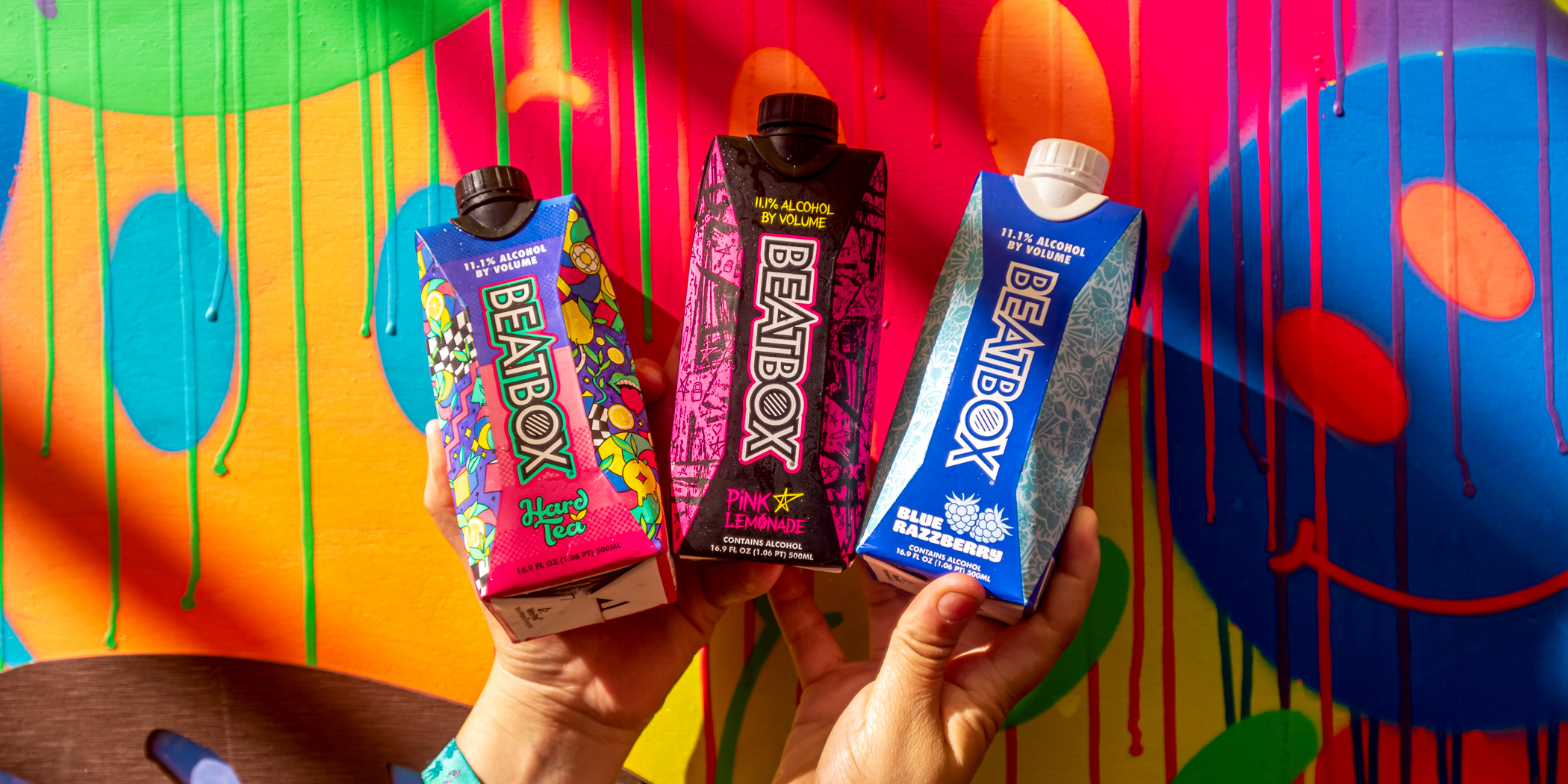

BeatBox Beverages

Texas, United States
June 2023
Beverages
Wholesale/Retail
United States
BeatBox Beverages headquartered in Austin, Texas, is the fastest-selling ready-to-drink (RTD) cocktail and wine brand in the United States (U.S.), with over 10 million BeatBoxes sold. The brand was founded and is led by friends Justin Fenchel, Aimy Steadman, and Brad Schultz, along with original co-founders Jason Schieck and Dan Singer. BeatBox was one of the early players in the RTD beverage space, launching its company in 2013 and raising one million dollars from Mark Cuban on Shark Tank in 2014. BeatBox is also the fastest-selling single-serve wine in the United States and the winner of the 2021 Brewbound Rising Stars award. BeatBox has always differentiated itself in the market through a combination of brightly packaged boxes, delicious wine-based punch in classic flavors with a kick, and a community built around the brand and music. The company offers two product lines: 6% alcohol by volume (abv) and 11.1% abv, along with its ever-expanding lineup of flavors and variety packs.
Overall B Impact Score
Governance 15.4
Governance evaluates a company's overall mission, engagement around its social/environmental impact, ethics, and transparency. This section also evaluates the ability of a company to protect their mission and formally consider stakeholders in decision making through their corporate structure (e.g. benefit corporation) or corporate governing documents.
What is this? A company with an Impact Business Model is intentionally designed to create a specific positive outcome for one of its stakeholders - such as workers, community, environment, or customers.
Workers 25.2
Workers evaluates a company’s contributions to its employees’ financial security, health & safety, wellness, career development, and engagement & satisfaction. In addition, this section recognizes business models designed to benefit workers, such as companies that are at least 40% owned by non-executive employees and those that have workforce development programs to support individuals with barriers to employment.
Community 17.3
Community evaluates a company’s engagement with and impact on the communities in which it operates, hires from, and sources from. Topics include diversity, equity & inclusion, economic impact, civic engagement, charitable giving, and supply chain management. In addition, this section recognizes business models that are designed to address specific community-oriented problems, such as poverty alleviation through fair trade sourcing or distribution via microenterprises, producer cooperative models, locally focused economic development, and formal charitable giving commitments.
Environment 21.6
Environment evaluates a company’s overall environmental management practices as well as its impact on the air, climate, water, land, and biodiversity. This includes the direct impact of a company’s operations and, when applicable its supply chain and distribution channels. This section also recognizes companies with environmentally innovative production processes and those that sell products or services that have a positive environmental impact. Some examples might include products and services that create renewable energy, reduce consumption or waste, conserve land or wildlife, provide less toxic alternatives to the market, or educate people about environmental problems.
Customers 4.0
Customers evaluates a company’s stewardship of its customers through the quality of its products and services, ethical marketing, data privacy and security, and feedback channels. In addition, this section recognizes products or services that are designed to address a particular social problem for or through its customers, such as health or educational products, arts & media products, serving underserved customers/clients, and services that improve the social impact of other businesses or organizations.